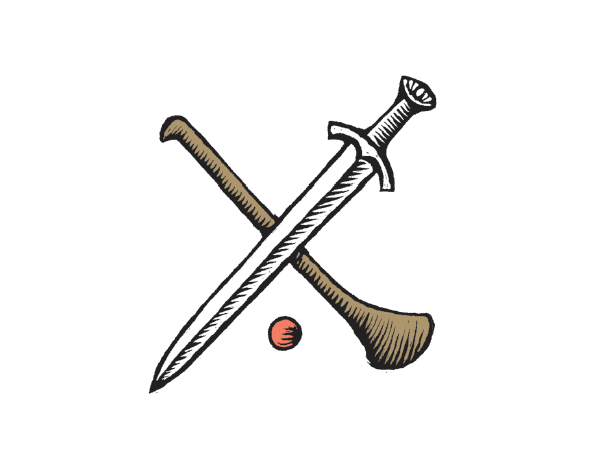dalta ‘a pupil’

The word dalta is frequently used in Irish language classes and schools. A young person may be declared dalta na seachtaine ‘pupil of the week’, complete his or her work in leabhar an dalta ‘the pupil’s book’ and progress to being dalta sinsearach ‘a senior pupil’.
Although the Irish word dalta means ‘pupil’ today, in the past dalta referred to a foster-child. Fosterage was commonly practised in medieval Ireland, not only when parents were unable to look after a child. At least part of the reason for this was that fosterage strengthened ties between families. Early tales and poems suggest that ‘foster-families’ formed strong emotional bonds which lasted after the foster-child became an adult. The story of ‘The Cattle-Raid of Cooley’, for example, tells how Ulster warrior Cú Chulainn is devastated after having killed his foster-brother, Fer Diad. In this Old Irish tale, Cú Chulainn says cluichi cách, caíne cách co Fer Diad isin áth ‘all was play and sport until I met with Fer Diad at the ford’.
According to early Irish law, there were two main types of fosterage: fostering out of affection and fostering for payment. The amount due to a foster-family who had undertaken ‘fostering for payment’ depended on the status of the foster-child and this was often paid in cattle, a king’s son being valued at eighteen cows.
In return, the foster-parents had a duty to provide everyday care for foster-children and to prepare them to take up positions in society by teaching skills appropriate to their gender and status. In addition to kiln-drying, wood-cutting and animal-herding, boys from noble families might learn to ride horses and play board-games. A girl’s upbringing had a more domestic focus which included kneading dough, cooking, tending animals and embroidery.
Learning Intentions
Learn moreActivities
Learn moreFun Facts
Learn moreInteractive Quiz
Learn moreImages
Learn moreLinked Resources
Learn moreLearning Intentions
To understand the societal function of fosterage in medieval Ireland To appreciate different experiences of childhood in the past and present To think about divisions that are made according to gender and status To explore emotional connections and relationships between people To understand how words change meaning over time To begin to use historical dictionaries
Linked Resources
Fosterage in medieval Ireland https://www.historyireland.com/medieval-history-pre-1500/fosterage-child-rearing-in-medieval-ireland/ English words which have changed meaning over time https://www.mentalfloss.com/article/61876/11-words-meanings-have-changed-drastically-over-time
